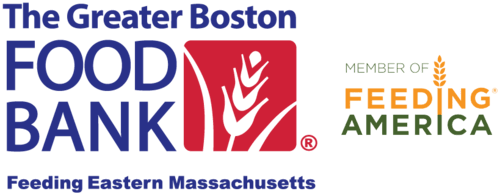GBFB Reflects on Pride Month
During Pride month, we honor the 1969 Stonewall Uprising in Manhattan, a turning point for the modern gay rights movement, and celebrate the promotion of self-affirmation, dignity, equality, and increased visibility of lesbian, gay, bisexual, transgender, queer, and additional sexual orientation and gender identities (LGBTQIA). As a share of total population, Massachusetts has the second largest LGBTQIA population of any state, making it home to a significant proportion of the LGBTQIA community. While much progress has been made toward achieving justice and equal opportunities for LGBTQIA communities in the Commonwealth and nationally, significant social, economic, and political barriers remain.
Data from GBFB’s recently released third annual statewide study, “Opportunities to Improve Food Equity and Access in Massachusetts,” demonstrate that 45% of LGBTQIA adults in Massachusetts experienced food insecurity at some point during 2022. While this rate shows a modest decline in food insecurity among this population from the 2021 data (51%), the numbers tell us that this group continues to face hunger at a rate disproportionate to the overall population.
The research also demonstrates that food pantry use among the LGBTQIA population jumped from 46% in 2021 to 62% in 2022, a trend consistent with overall food pantry use among Massachusetts households with food insecurity.
Prior to the pandemic in 2018, The Equality Fund at The Boston Foundation’s “Equity and Equality: Advancing the LGBTQIA Community in Massachusetts” report demonstrated that 32.7 % of LGBTQIA youth of color in Greater Boston are unemployed, and 15.5% unstably housed. In 2017, 65% of Massachusetts’ transgender people report experiencing discrimination in public spaces in the year prior.
National data from the Trevor Project’s 2021 Homelessness and Housing Instability Among LGBTQIA Youth report shows that unsurprisingly, LGBTQIA youth who reported past housing instability or current homelessness had more than three times greater odds of reporting food insecurity in the last month than those who did not experience housing instability. The University of California Los Angeles (UCLA) School of Law’s Williams Institute’s 2022 report and U.S. Census Bureau data from 2021 paint similar pictures of high food insecurity and difficulty affording household expenses for LGBTQ+ adults.
As we grapple with these concerning statistics, we must seek programmatic and policy changes to improve food

access and eliminate discrimination for LGBTQIA groups. GBFB is committed to dismantling barriers that historically underserved communities have faced in accessing programs and services and strengthening relationships between local food pantries and LGBTQIA organizations to create safer environments for all people in need of food assistance. Lack of affordable housing opportunities, income inequities, access to transportation, and employment opportunities are all factors that contribute to food insecurity and have disproportionately impacted LGBTQIA people. GBFB’s policy and advocacy strategy supports addressing these factors through systemic policy change.
During this Pride Month, let’s celebrate how far our LGBTQIA community has come but also recommit our efforts to advance equity and access to food for LGBTQIA leaders, volunteers, & neighbors. During the month of June, visit the Portraits of Pride exhibition at City Hall Plaza and online to learn about and celebrate LGBTQ+ leaders in the Boston community.
